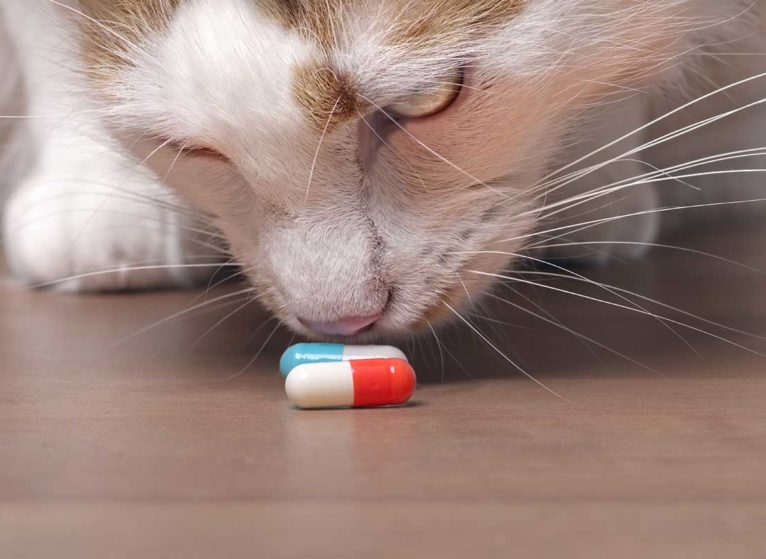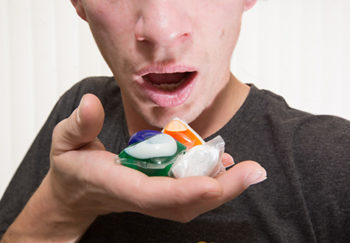Kristin Wenger, education coordinator for the Blue Ridge Poison Center, contributed this post. It's repurposed from The Antidote, the poison center's newsletter.
The COVID-19 pandemic has been devastating to people, families, businesses, schools, and more. But there is one area that has seen some benefit. There has been an unprecedented increase in people adopting and fostering homeless pets.
In fact, many animal shelters around the country have reported that they are running low on dogs and cats. With so many new pet owners among us, this is a good time to remind everyone about pet poisoning.
What's Poisonous to Dogs and Cats?
“My puppy just licked paint from a spill on the floor; what should I do?”
“My cat just ate part of my houseplant; is it poisonous?”
These are examples of calls to the Blue Ridge Poison Center from frantic pet owners whose animals chewed, swallowed, or played with something harmful. Like young children, animals don't know what's safe and what's poisonous.
Some foods and medicines that are safe for people may not be safe for animals. Substances that are poisonous to animals, such as antifreeze, chocolate, or bone meal fertilizer, might actually smell and taste good to them. Dogs in particular explore the world with their mouths, just as babies do.
According to the American Society for the Prevention of Cruelty to Animals (ASPCA), these common foods and home and outdoor items could make your pet sick.
In the Kitchen: Human Foods That Poison Pets
- Chocolate
- Raisins and grapes
- Macadamia nuts
- Alcohol
- Onions, garlic, and chives
- Caffeine
- Xylitol (a sweetener used in some gum, candies, etc.)
Around Your House: Dangerous Cleaning Products & Other Items
- Mothballs
- Essential oils
- Batteries
- Cleaning products
- Lamp oil
- Medicines (both prescription and over-the-counter)
- Tobacco and nicotine products
In the Garage: Chemicals & Gasoline
- Paint solvents
- Gasoline
- Ice melt chemicals
- Antifreeze
In the Yard: Poisonous Plants & Fertilizers
- Snail & slug baits
- Fertilizers
- Insecticides and rodenticides
- Bone and blood meal
- Many plants, including: Lilly of the valley, foxglove, oleander, and several types of bulbs.
This isn't a complete list. If you suspect your pet swallowed or chewed on anything unusual, call your veterinarian or an animal poison control center.
Poison Prevention
Most poisonings, animal or pet, happen by mistake
There are two animal poison control centers in the U.S. Both are staffed by veterinarian toxicologists. They're open 24 hours a day, every single day. (Note: Both animal poison control centers charge a small consultation fee.)
Pet Poisoning Prevention
Of course, it's always better to prevent, rather than treat, a poisoning.
- Keep trash bins tightly covered or concealed.
- Keep all medicines, household products, and other poisons locked up or stored out of the sight and reach of pets.
- Don’t forget about purses, suitcases, and backpacks. They often contain substances such as candy, tobacco products, or medications. Store these items safely out of your pets’ reach.
- If you drop a pill, stop everything until you find it.
- In winter, wipe your pet’s feet and belly after being outdoors in places where people have used ice melt chemicals.
- Avoid mistakes! When giving medicine or using flea control products, check the label and follow instructions carefully.
- Never give any human medications or supplements to your pet without your veterinarian’s permission.


Thanks for this information. It is really very helpful. now i will not give my dog chocolates and all.